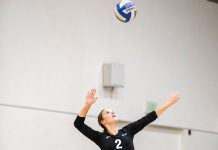Looking at the teams on the field at Alpenrose Stadium, the
differences don’t stand out.
Portland – Looking at the teams on the field at Alpenrose Stadium, the differences don’t stand out. All players wear the same uniforms and are playing the same game – softball.
But three teams at the Little League Softball World Series traveled much further to get there than the others, from worlds very different than those of their North American counterparts.
Back in Bacolod City in the Philippines, the Asia-Pacific team plays on a home field that has no bases and an infield of rough lava rock instead of soft infield dirt. The Latin America players come from the Caribbean island of Curacao, which is lined with white sandy beaches and surrounded by aquamarine ocean waters like a scene from a postcard. And team Europe hails from Brzeg, Poland, where softball is barely a blip on the sports radar.
“They don’t have anything like this,” said Lina Jayme, interpreter for the Bacolod City team, waving toward the well-manicured Alpenrose field earlier this week. The Asia-Pacific players reportedly didn’t even have softball spikes when they arrived in Oregon. Jayme said the team didn’t have access to a pitching machine until this year.
Despite this, pitcher Veronica Belleza throws a blistering 62 mph fastball. That kind of speed, similar to that of college pitchers, was the talk of the tournament.
But no high-cost pitching coaches are behind the success of Belleza, just good old fashioned hard work.
“She’s very talented,” said coach Lagrimas Cilkon through Jayme. “Very focused.”
The Bacolod City players, however, do have softball experience at the helm. Coaches Vilda Benjamin and Dina Barletta played the sport internationally. The coaches work at the Education and Training Center School, which all the players attend, and hold practice daily after class.
The hard work has paid off. When the Bacolod City team first made it to the World Series over a decade ago, it was embarrassed by the competition. This year, the squad took third.
“Softball is very popular,” Jayme said. “Bacolod City is beginning to become the softball capital of the Philippines.”
Brzeg, Poland is very much not a softball capital in any way. Team Europe’s assistant coach Tomasz Plutarski played baseball growing up, learning from the team’s other coach, Piotr Romanowicz. Plutarski started the girls’ team a few years ago.
“It is not a very popular sport (in Poland),” he said. “But the girls like to play softball.”
Despite going winless in the World Series, the Brzeg girls – all making their first trip to the United States – made sure to enjoy the experience. In addition to trading pins, the players brought Polish chocolate bars to give to opposing teams before games and would leave the dugout and do the Macarena or the YMCA with the umpires during the traditional mid-game breaks.
The Soraida Julianna Little League team made its first-ever appearance to the World Series this year by knocking off perennial power Puerto Rico 5-3 and 8-6 in the best-of-three Latin American Championship. The team beat Gilroy 3-1 in the fifth-place game.
“They’re playing very well,” said manager Evan Balentina earlier in the week about how his team was stacking up to the competition at the series. “They are doing what they had done in the series with Puerto Rico, which is hitting. And if you hit well, you can win.”
For the North American players, getting to face teams from places they’ve never even heard of is one of the biggest perks about playing in the World Series.
When asked to name their favorite part of the World Series, many of the Gilroy players said it was playing teams from other countries.
“It sounds cool, saying that you played Asia,” said Gilroy pitcher Danielle Kinoshita, adding, “I always wonder what they’re saying (on the field), if it’s good or bad.”
While in the United States, the international players stay with host families who provide lodging and food – and some travel guidance. On the players’ days off, Balentina said the families show them around Portland.
“We’re enjoying (the trip),” Balentina said. “The hospitality of the host parents is very good and (the players) are having fun.”














